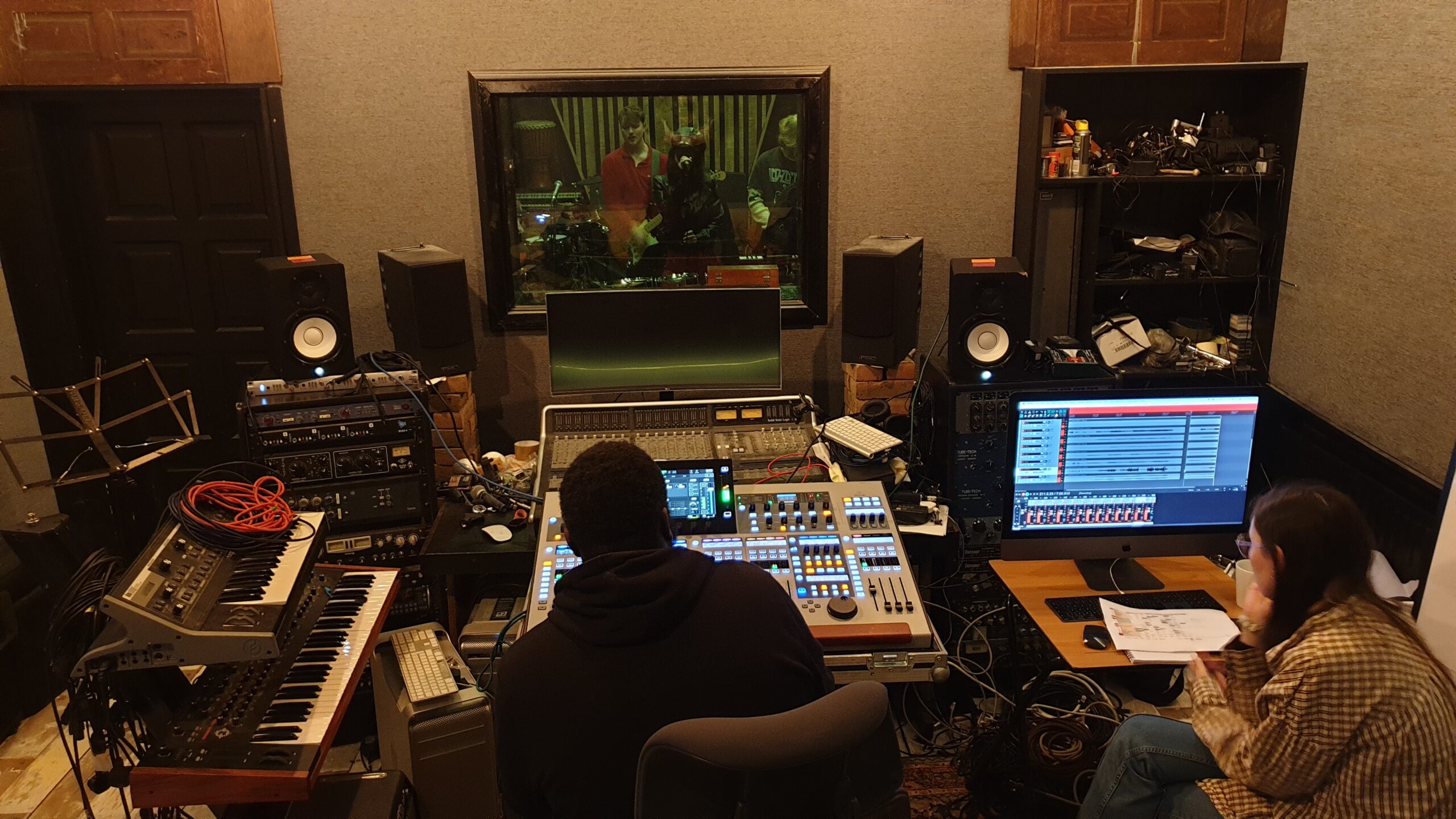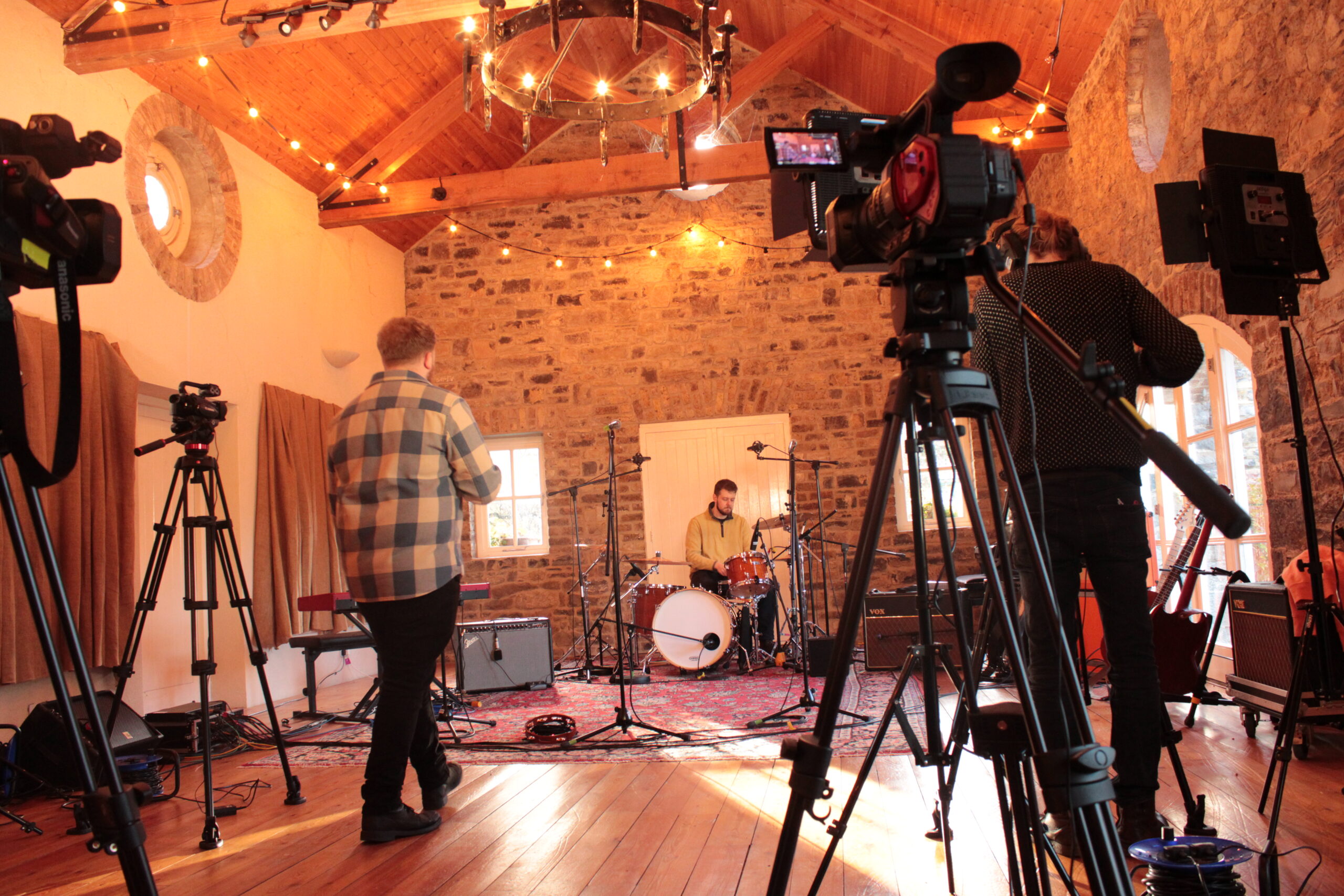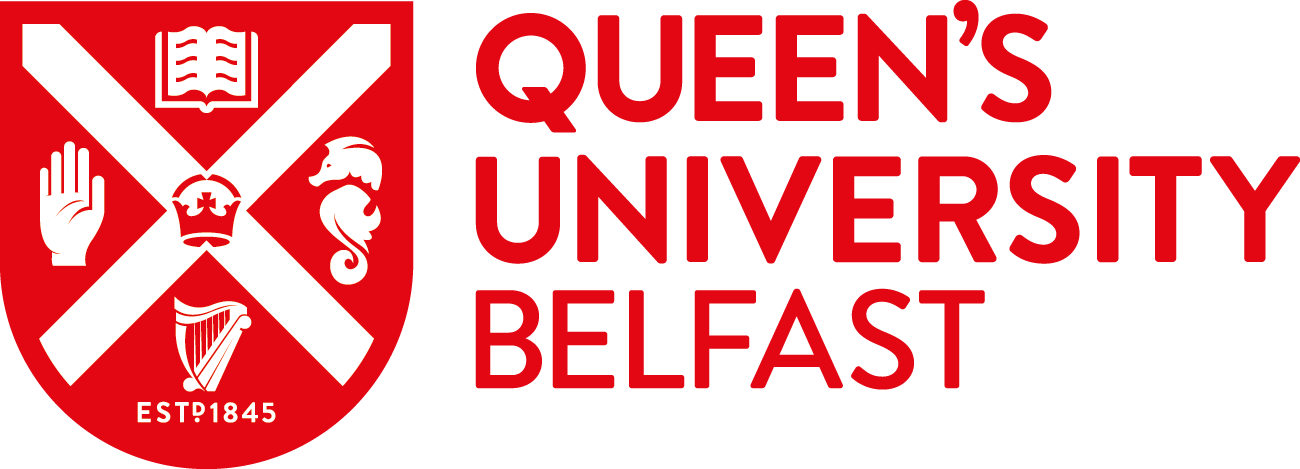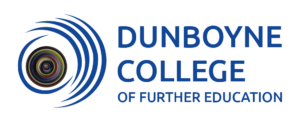Higher Nationals
Sound EngineeringBTEC Higher National Diploma in Music (Sound Engineering)
DETAILS IN-BRIEF
Duration: Two years, with an optional exit award after year one.
Certification: BTEC Higher National Diploma in Music (Sound Engineering), with optional Higher National Certificate after year one.
Level: Level 6 Higher Certificate (HNC/D)
Course Code: SND
YEAR ONE MODULES
Applied Sound Principles
Creative Software Techniques
Live Sound Techniques
Marketing and Promotion
Professional Development
Recording Technology
Sound Engineering Fundamentals
The Music Industry
YEAR TWO MODULES
Advanced Music Production
Advanced Sound Design for Interactive Media
Advanced Sound Engineering
Creative Portfolio
Creative Research Project
Live Mixing
Mixing and Mastering
Please note that all the modules listed are subject to change due to availability and demand.

This page is for our two-year Higher National Diploma in Sound Engineering. For our one-year foundation course in Film, click here.
WHAT ARE THE HIGHER NATIONALS IN sound?
Are you passionate about music and sound? Do you want to develop the technical skills and knowledge required to succeed in the exciting world of sound engineering? Look no further than our HND in Sound Engineering. This comprehensive course is designed to equip you with the knowledge and practical skills required to excel in the ever-evolving audio industry.
Our practical course is designed to give you hands-on experience in a range of audio engineering disciplines, including recording technology, live sound techniques, and sound design for interactive media. With classes based out of professional recording studios, live music venues, and specialist computer labs on campus, you’ll have the opportunity to work with industry-standard equipment and gain real-world experience in a range of settings.
Graduates from our HND can take advantage of a variety of potential career pathways, including roles as recording engineers, live sound engineers, sound designers, audio post-production engineers, and more.
COURSE STRUCTURE
Year One
In the first year, students will gain a solid foundation in essential sound principles, acoustics, studio design, recording technology, and sound engineering fundamentals through practical classes in dedicated computer labs and professional recording studios.
Additionally, they will explore the use of creative software techniques, live sound techniques, and marketing and promotion strategies, ensuring you are well-rounded and prepared for the demands of the industry.
The first year also includes modules on professional development and an overview of the music industry, setting the stage for a successful career in sound engineering.
Year Two
The second year focusses on refining and expanding your specialist sound engineering skills. Master advanced music production techniques, sound design for interactive media, and live mixing while working on your creative portfolio, which you can use to help secure work after graduation. Dive into the intricacies of mixing and mastering, and engage in a creative research project that showcases your unique talents and interests.
The course not only provides you with the technical expertise necessary to succeed in various roles within the audio industry but also fosters critical thinking, problem-solving, and collaboration skills.
Modules in Detail: Year One
Applied Sound Principles: This module is crucial for sound engineers and music professionals, as it explores the physics of sound waves, how humans perceive sound, and the principles of acoustics. Understanding these concepts helps professionals create samples and reverb responses for high quality music and sound design projects that can be used in a wide range of applications.
Creative Software Techniques: This module teaches students how to use digital audio workstations (DAWs) to create multi-track recordings and mixes, a key skill in the modern music industry. By exploring MIDI sequencing, virtual instruments, software synths, beat programming, and mixing techniques, students can learn to create polished and innovative recordings suitable for various genres and applications.
Live Sound Techniques: This module focuses on sound reinforcement for music concerts, a practical skill in high demand in the music industry. By learning to plan, set up, and operate a sound system for live events, students can develop skills transferable to other sound engineering areas, such as theatre, broadcasting, corporate events, and houses of worship.
Marketing and Promotion: This module is important for freelancers and entrepreneurs in the music industry, as it provides a toolkit of offline and online marketing techniques to help them build their careers. By exploring effective networking, social media, and resources for creating a professional marketing presence, students can learn to promote themselves and their work in a competitive industry.
Professional Development: This module helps students to explore potential employment opportunities in the music industry and build an awareness of their professional strengths and identity. By developing a strategy for success, students can become versatile and enterprising professionals equipped to pursue various career opportunities in the industry.
Recording Technology: This module is important for sound engineers, music producers, and musicians, as it explores the recording techniques and technology used in a range of settings. By learning studio setup procedures, investigating recording equipment used by industry professionals, and exploring pre-production planning, students can become competent with the audio equipment used to record audio sources to industry standards.
Sound Engineering Fundamentals: This module provides students with the knowledge and understanding of sound engineering concepts and practices, which is essential for managing audio in a safe, controlled, and creative manner. By exploring the technical and creative use of sound technology, students can learn the fundamental techniques professional sound engineers use in various settings.
The Music Industry: This module provides an introduction to the structure of the music industry, including revenue flows, employment opportunities, business activities, and growth potential. By analysing income streams and assessing which revenue streams are relevant to their own personal career goals, students can gain a deeper understanding of the complexities of the industry and the potential income opportunities available to them.
Modules in Detail: Year Two
Advanced Music Production: This module builds on material introduced in the first year (Music Production), and skills learnt in year one are consolidated and developed in light of current industry best practices. The confident use of technology within the production environment is pivotal to professional practice in the music and entertainment industries. Speed, proficiency and workflow, in addition to an effective understanding of key techniques and processes, are vital to a successful future career. This module explores the finer points of music production, focusing on greater control and manipulation of material throughout the creative process. Advanced techniques for the manipulation of audio and MIDI are explored, as well as mixing, mastering and workflow. The module will develop an advanced level of ability across a range of connected fields, providing a platform for progression into the creative industries. Topics included in this module are advanced DAW operation, critical listening and analysis skills, advanced MIDI sequencing, editing, manipulation and arrangement, advanced audio sequencing, editing, manipulation and arrangement, VST instruments, samplers and effects, advanced synthesis and sampling, DAW signal flow and routing, mixing and mastering, session management and workflow. On successful completion of this module, students will be competent recording and producing music, using industry standard DAW platforms in a professional context, and have a command of advanced processes and procedures. In addition, reflective practice and critical thinking are used to analyse and evaluate progress.
Advanced Sound Design: This module explores how to create sound design specifically for media such film and animation. Topics included in this module are: dialogue recording, foley sound, sound design techniques, editing and mixing. On successful completion of this module students will be able to create sound design for a variety of media projects.
Advanced Sound Engineering: The skill set of a modern sound engineer is extensive. It is often crucial to have a complete understanding of the operational setup of the system they are working with, and have the ability to be thrown into new situations and quickly map out the wiring and functionality of their equipment. The sound engineer is expected to have the technical expertise, along with the critical listening mastery, to enable high-quality sound reproduction in a range of scenarios. The aim of this module is to develop the skill set in planning, setting up, problem solving and delivery capabilities of the sound engineer, to produce two high-quality productions in contrasting situations and environments. Topics included in this module are: project, system requirement, personnel and compliance planning; system design, project delivery, recording and reproduction of project material. On successful completion of this module the student will have overseen two sound engineering projects from conception to delivery, collaborating with various people. The student will then produce two finalised recordings to add to their portfolio and gain critical feedback from their client about the operational successes of their projects.
Creative Research Project: This module enables students to explore and examine a current topic in music within their specialist pathway. By completing a mini-dissertation, students will learn qualitative and quantitative research methods and apply them creatively to their research topic. The completion of the dissertation will demonstrate academic requirements for progression into degree courses and provide practical data for their desired area of expertise. Students can undertake the research project individually or in small groups, but written work must be completed individually. Topics for research could include investigating gender roles within artist management, the value of releasing vinyl in a digital age, or the role and audience impact of visual effects in concert touring. By the end of this module, students will be equipped with the necessary research tools to pursue any career path within the music industry.
Live Mixing: This module builds on the Live Sound Techniques module in first year, and goes beyond the operation of sound reinforcement equipment. It emphasizes empathic communication with performers and other audio crew and understanding the emotional background of a concert or festival appearance. Students will learn advanced live engineering techniques and appreciate the importance of communication with performers and audio crew. They will also learn to create appropriate input lists, stage plans, and technical riders for music artists, build a complete PA system suitable for the performance of a music artist, communicate effectively and empathically with artists and other crew members at a music event, and demonstrate the ability to create a front of house (FOH) and monitor mix for a contemporary music artist at a show. Suggested assessments include submitting a portfolio of appropriate documentation for a touring artist, and a sound check and show scenario that would test the student’s operational and communication skills and knowledge. By the end of this module, students will be able to work effectively in a live sound environment and communicate empathetically with artists and audio crew.
Mixing and Mastering: This module provides students with the knowledge and understanding of the techniques used by sound engineers and music producers to combine/mix multiple layers of audio together to make one final track. Technical and creative processes involved in optimizing this final track for public listening (mastering) will also be investigated, as well as preparing mastered audio files for various delivery formats. Students will explore the software and hardware used to mix and master audio in various scenarios and learn how to bring out the best in their multi-track projects. The techniques examined in this module will give students the experience of preparing an audio product to a professional standard for multiple systems and media formats including broadcast and digital duplication. By the end of this module, students will be competent in taking a track from the mixing stage through to mastering, as well as being able to prepare audio formats for a wide range of media destinations.

WHY STUDY HIGHER NATIONALS IN SOUND AT DCFE?
Our Higher National Diploma in Sound Engineering is the perfect choice for aspiring audio professionals, offering a unique blend of comprehensive curriculum, practical learning, and industry-relevant skills. Dive deep into the world of sound engineering, mastering everything from fundamentals to advanced music production and sound design, ensuring a well-rounded understanding of the audio industry.
Experience hands-on learning through real-world projects that simulate industry scenarios, preparing you for a smooth transition into the professional world. Our course is designed to stay up-to-date with the latest trends and technologies, equipping you with skills that are highly sought-after by employers. The Sound Engineering HND course allows you to focus on your specific interests and career goals within the audio industry, tailoring your learning experience to suit your individual needs.
Collaboration and networking play a vital role in our program, fostering teamwork skills and providing valuable opportunities to connect with peers and professionals in the music and audio industry. The course paves the way for a diverse range of exciting career paths, including live sound engineering, studio sound engineering, music production, sound design, and more.
In addition to immediate employment opportunities, the Higher National Diploma serves as a stepping stone for further education, such as pursuing a bachelor’s degree in sound engineering or a related field.
The Higher National Diploma’s more extensive coursework and advanced skillset make its graduates more competitive in the job market and better prepared for various creative media roles.
The Higher National Diploma is a recognised international qualification, delivered in over 50 countries worldwide. Graduates of our Higher Nationals in Sound Engineering can progress to various undergraduate degree courses upon successfully completing their studies.
The two-year duration and deep focus of the Higher National Diploma at DCFE often leads to stronger connections with industry professionals and organizations, providing students with valuable networking opportunities and a better understanding of the media production landscape. Plus, students will build an extensive portfolio of work to secure employment.

CERTIFICATION
Being a two-year course, we know how important flexibility is. This is why we offer our students the option of an exit award after successfully completing the first year. This can suit those who wish to take a break from study or progress onto a different course in DCFE or elsewhere.
Year One
– Pearson BTEC Higher National Certificate in Music (Technology)
Year Two
– Pearson BTEC Higher National Diploma in Music (Sound Engineering)
Links
Click here for the NARIC Academic Recognition of the HNC
Click here for the NARIC Academic Recognition of the HND
CAREER OPPORTUNITIES
Our Higher National Diploma in Sound Engineering program opens up a world of exciting and diverse career paths for aspiring music and sound professionals. With this qualification, you will be well-prepared to explore a multitude of roles in the music, film and greater creative media industry.
Our program prepares you for a range of exciting careers in the music industry. From music production to live sound engineering, film sound to recording, acoustics and studio design to mix engineering, our comprehensive practical course equips students with the skills and knowledge to succeed.
ENTRY REQUIREMENTS
At least one of the following:
- Leaving Certificate
- Leaving Certificate Applied (LCA)
- QQI Level 5 major award in a related subject
- Mature students of all background
- Other equivalent qualification
In addition to the following:
- Submitting of a personal statement (more details of which will be provided upon application)
HOW TO APPLY
Apply directly using the button below.
You will find the course by selecting “Higher Nationals” in Department on the left and selecting the HNs in Sound Engineering from the Course menu on the right. This is shown in the image below.

EXAMPLES OF HIGHER EDUCATION PROGRESSION
Graduates can take advantage of many degree progression routes, such as the one-year top-up degrees and advanced entry routes into Universities, Institutes of Technologies and Technological Universities across Ireland. As the Higher Nationals are international qualifications, offered in over 50 countries around the world, advanced entry opportunities are also available in the EU and UK. Please note that in all cases, entry is not guaranteed as per institution admissions policies.

Sonic Arts Research Centre, QUB: BA (Hons) Music and Audio Production or BA (Hons) Music and Sound Design
(Level 8, 3 Years with Advanced entry into Year 2 possible)

TU Dublin BIMM: TU961 Commercial Modern Music (Music Production)
(Level 8, 4 Years with Advanced Entry into Year 2 or Year 3 possible)

DkIT: DK865 BA in Audio and Music Production
(Level 8, 4 years, with Advanced Entry into Year 2 possible)

BCFE: BA (Hons) in Media Production Management
(Level 8, 1 Year)
Accredited by DCU
COURSE FEES
For information on fees, please see our Fees page
